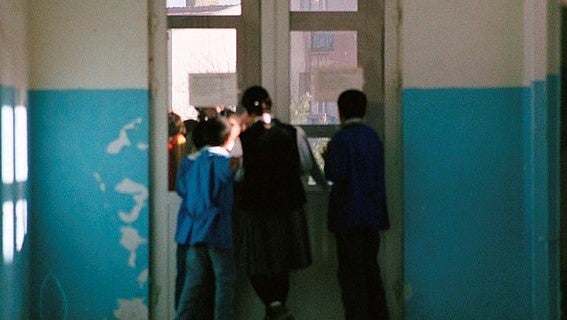 School hallway in Turkey.
School hallway in Turkey.
Social distancing measures in response to the risk of coronavirus (COVID-19) have closed schools, which at the peak has affected more than 1.5 billion children and young people around the world. This is having a negative impact on learning outcomes, and estimates suggest that significant losses will become evident when schools re-open. These lags in learning will last a lifetime by decreasing the earnings potential of the affected students. Moreover, it is likely that these learning and earnings losses will not be evenly distributed but will affect the disadvantaged learners much more than others. Some modeling suggests that the loss of learning during the extraordinary systemic crisis of World War II was still having a negative impact on the lives of former students some 40 years later.
With this in mind, it is crucial to find ways to protect learning outcomes during the current crisis and going forward, build a system that is resilient to future shocks. Over the past few months, governments around the world have put emergency remote learning efforts in place, but they have been plagued by limited capacity, weak student connectivity, constrained interactions between students and teachers, and poor attendance.
To fix these shortcomings going forward, governments need to: (i) protect education spending; (ii) provide a one-off increase in spending to the schools that have been hardest hit by learning losses; (iii) invest in summer learning programs and high-dosage tutoring to help those students falling furthest behind; (iv) implement just-in-time learning assessments so that teachers can plan their lessons to accelerate the learning recovery once schools re-open; (v) provide scholarships to keep children enrolled; and (vi) develop employment programs and lifelong learning opportunities for at-risk youths. In addition, they need to continue to address the ongoing public health emergency.
COVID-19 is forcing us to rethink the education system, and it is clear that automation will play an increasingly significant role in the process of teaching and learning in the future. To a large extent, the employment effects of the COVID-19 pandemic are skill-biased. For those with lower levels of education, COVID-19’s negative effect on employment has been much more severe than for those with higher levels of education . Under a worst-case scenario, those workers with automation-substituting skills (in other words, skills that machines can replace) will see their productivity drop as they are replaced by technology. However, these outcomes can be mitigated by improving the quality of education. Recently, the World Bank approved a US$160 million Safe Schooling and Distance Education Project loan to the Republic of Turkey to enhance the capacity of the education system to provide e-learning equitably to school-age children during and following the COVID-19 pandemic and in any future shocks. This was the World Bank’s first stand-alone education lending response to the COVID-19 crisis.
While the project supports Turkey’s immediate education response to the COVID-19 outbreak, it also builds the foundation for critical investments aimed at building human capital equitably over the mid-term and at developing the systems needed to withstand future shocks.
The Safe Schooling and Distance Education Project is entirely appropriate for Turkey’s needs and builds on the country’s education platform, but it is also relevant to many other countries, whether rich, poor, or middle-income. All countries are facing challenges in terms of their capacity. This project extends the reach of Turkey’s education system to enable it to serve more than 12 million students over the next two years. The online education platform is being designed and scaled not only to respond to the present crisis but also to build a future-oriented and resilient digital education system for the long term. It will integrate physical teaching and learning with remote teaching and learning. The project is also investing in a strong remedial system to help students when they return to school.
All countries are facing the fallout from the school closures induced by COVID-19 and will need to mitigate these effects and to build their education systems to come back stronger. This project provides a blueprint for other countries to follow. As in Turkey, an effective response requires at least three actions:
1. Investment in Emergency Connectivity and IT Infrastructure. This is needed to expand the country’s e-learning platform as part of the response to COVID-19. It is an essential part of the development and implementation of a new digital education system for the emergency and beyond.
2. Production of Digital Content. As the remote learning platform is developed, there will be a need for goods, services, expertise and training to support the delivery of distance education content while schools are closed due to COVID-19. In Turkey, an innovation hub and professional learning labs are being set up to support a gradual return to classroom-based teaching. In addition, the Turkey project is strengthening the blended teaching and learning process that will be needed going forward.
3. Building Institutional Capacity. It is important to strengthen the system’s capacity for coordination, management, and monitoring and evaluation as well as for the continued delivery of safe and equitable digital education services. The capacity of Ministries of Education needs to be strengthened not only for the immediate implementation of emergency projects but also to build the system of the future.
Developing a high-capacity, relevant digital education system will be imperative to minimize the educational costs of school closures stemming from the COVID-19 outbreak as well as any future crises. While educational achievements need to be protected in the short term, we also need to make the right investments to ensure that education systems are resilient and are prepared and equipped for the years to come.


Join the Conversation